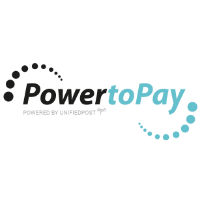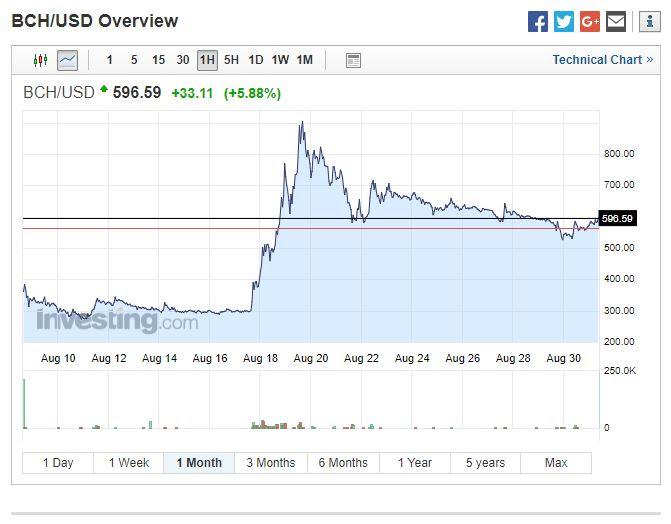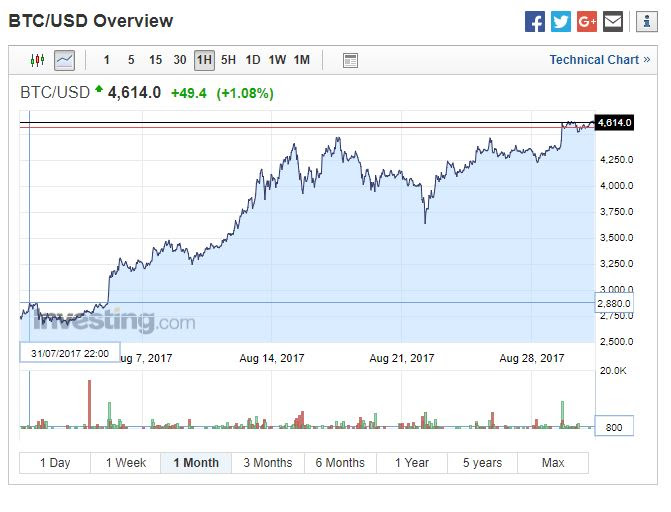How can treasurers use cryptocurrencies?
| 7-9-2017 | Carlo de Meijer |

Recently I read a blog from Victoria Beckett published in GTNews, titled “How can treasurers use cryptocurrencies”. Nowadays there are more than thousand different cryptocurrencies in circulation. The dollar value of the 20 biggest cryptocurrencies is around $ 150 billion. While cryptocurrencies soared to unknown levels, also the explosion in Initial Coin Offerings, or ICOs for funding purposes is evidence of their growing attraction. But are these cryptocurrencies suited for corporate treasuries.
Benefits
In her blog Victoria Beckett said that there are several benefits to treasurers using cryptocurrencies. These may bring various benefits including avoiding paying large transactions fees to banks, realising immediate payments and the ability for transactions to be kept open or private. According to her corporate treasury business no longer need to use mainstream financial regulatory frameworks. Cryptocurrencies could provide business with the ability to move assets outside of the normal banking regulatory framework.
She argued that one of the key benefits to making business payments using cryptocurrencies is that it cuts out banks in the transaction completely, avoiding large transaction fees, while “payments can also get transferred immediately anywhere in the world”.
Critics
But there were some critics as “banks have to trade off the operational benefits that the technology may provide against the added cost of needing to buy and sell a cryptocurrency to make a transaction.” “Therefore, the benefits are low when dealing with efficient ‘corridors’ such as US and Europe, but higher when transacting with Zimbabwe” David Putts.
Besides, there are a large number of different cryptocurrencies in circulation with different protocols etc. These are not interoperable/interchangeable. So when using cryptocurrencies they at some point in time have to be transferred into fiat money. And that also costs money.
I also missed other use cases for corporate treasurers in the article. Just using cryptocurrencies payments would be a very limited use case, given the large number of other activities performed by corporate treasurers.
Risky business
When reading the article I got the impression that the risks of cryptocurrencies were rather under estimated. Certain features of cryptocurrencies are not backed by any government, have no status as legal tender and rely on network protocols and cryptographic techniques to enable counterparties to transact. This may present various risks.
First of all cryptocurrency exchange platforms normally have no regulation. Thus there is no legal protection. And we have seen the various examples of hacking these exchanges with many people losing their money.
Second, virtual money is normally stored in a digital wallet on a computer. Though these wallets have passwords and key they are still valuable for hacking etc.
Third, there is no protection for funds under EU law when using cryptocurrencies as a means of payment. We still live in a largely fiat-money dominated world. So these cryptocurrencies had to be concerted one day into their own legal currency and that costs money.
Fourth, cryptocurrencies are very volatile. There is no guarantee that the cryptocurrencies will remain stable. Cryptocurrencies currently lack a derivatives market, which makes them a risky medium for business contracts that last for any amount of timer, especially given their constant value fluctuations. This year for example the exchange rate of the bitcoin climbed from a low of 968 dollar to more than 3000, fell back to 1.800 six weeks ago and climbed to 5.000.
Fifth, due to the untraceable nature of cryptocurrencies, they provide a high degree of anonymity, making them vulnerable to misuse for criminal activities.
Action from regulators across the world
For some, it is a pro that cryptocurrencies in most countries are not regulated, such as for hackers and/or speculators. That idea is however rapidly changing giving the risks associated. At a global level, there is an urgent need for regulatory clarity given the growth of the market.
All these risks mentioned above are prompting action from a growing number of jurisdictions.
Regulators in China have publicly announced that they will forbid the use of ICOs. And also regulators in other countries like Japan, Singapore, and the US are looking at ways to regulate. The SEC in the US has officially confirmed it was looking into regulation of cryptocurrency ICOs. The SEC is mainly concerned with the risks these ICOs pose. And Singapore will regulate ICO offerings that are deemed to be securities.
But also on a more broader scale Europa there is increased activity by regulators in Europe to reign in the use of crypto currencies. The EU Parliament is expected to pass measures soon to bring certain virtual currency service providers within their AML (anti money laundering) / CTF (counterfeiting) regulation. These measures do not seek to prevent the use of cryptocurrencies, but will require virtual currency service providers to implement customer due diligence measures.
Polish regulators are warning investors and banks to avoid dealing with digital currencies like bitcoin and ether. The regulators clarified that cryptocurrencies are not considered legal tender in Poland.
The Maltese regulatory watchdog (MFSA) also warned traders about the risks associated with the virtual currency. According to them a virtual currency is an unregulated digital instrument and is a form of money that is not equivalent to the national currencies. The MFSA however stressed that It does not (yet) regulate the acceptance of payment of service in regards to the virtual currencies.
Are central banks overcoming their reservations?
Central bankers, from Russia to China, Frankfurt and New York, are increasingly wary of the risks posed by these crypto currencies. I therefore question if central banks worldwide are overcoming their reservations versus cryptocurrencies and really come out in favour of the cryptocurrency.
The recent boom in cryptocurrencies and their underlying technology is becoming too big for central banks to ignore. The risk is that they are reacting too late to both the pitfalls and the opportunities presented by digital coinage.
Bitcoin and its peers pose a threat to the established money system by effectively circumventing it. CBs are well aware of losing control over the money supply, if they don’t react. A solution may be that CBs are issuing digital money themselves to maintain control. Various central banks worldwide are now experimenting with that idea.
Forward thinking
The attraction of virtual currencies is mainly for speculative reasons, rather than for corporates to facilitate treasury. Corporate treasuries are increasingly looking for centralisation of the treasury organisation away from decentralisation. They also are very much focused on reducing the various corporate risks including FX, short term interest rate, cross currency liquidity, etc.
And when it is regulated on a larger scale it is questionable if the described benefits of speed, efficiency or scalability attributed to the use of cryptocurrencies still will meet the costs associated .
The announcement by the Bank of China to put a halt on initial coin offerings or ICOs had a negative impact on the very volatile bitcoin and other cryptocurrencies. In one day it lost almost 15% of its value. The corporate treasurer however does not like volatility!

Economist and researcher

 When they hear e-invoicing, companies often think that this is sending invoices by e-mail. However, e-invoicing is more than that. Not only sending the invoice is part of this, but also the electronic booking, payment and collection of the money belongs to this process. Electronic invoicing leads to a major save of costs. For the sender, but especially for the receiver. Since e-invoicing is digitalizing invoicing for the sender as well as the receiver, a PDF-invoice is not seen as electronic invoicing.
When they hear e-invoicing, companies often think that this is sending invoices by e-mail. However, e-invoicing is more than that. Not only sending the invoice is part of this, but also the electronic booking, payment and collection of the money belongs to this process. Electronic invoicing leads to a major save of costs. For the sender, but especially for the receiver. Since e-invoicing is digitalizing invoicing for the sender as well as the receiver, a PDF-invoice is not seen as electronic invoicing.
 Wat is er gebeurd met de Bitcoin per 1 augustus? De Bitcoin is gesplitst! Ik zal het hieronder proberen uit te leggen. Ik voorspel u vast, het is niet eenvoudig. Na de vele discussies over de schaal van de digitale valuta Bitcoin, is er besloten om een geheel nieuwe valuta te maken, de Bitcoin Cash. Het is wel een beetje ingewikkeld allemaal. Het is een resultaat van politieke, technologische en ideologische discussies over het laten groeien van de Bitcoin. Sommige deskundigen zeggen dat een hele nieuwe valuta, genaamd Bitcoin Cash, kan helpen om Bitcoin op grotere schaal toegankelijk te maken voor een grotere groep mensen.
Wat is er gebeurd met de Bitcoin per 1 augustus? De Bitcoin is gesplitst! Ik zal het hieronder proberen uit te leggen. Ik voorspel u vast, het is niet eenvoudig. Na de vele discussies over de schaal van de digitale valuta Bitcoin, is er besloten om een geheel nieuwe valuta te maken, de Bitcoin Cash. Het is wel een beetje ingewikkeld allemaal. Het is een resultaat van politieke, technologische en ideologische discussies over het laten groeien van de Bitcoin. Sommige deskundigen zeggen dat een hele nieuwe valuta, genaamd Bitcoin Cash, kan helpen om Bitcoin op grotere schaal toegankelijk te maken voor een grotere groep mensen.




 Facturis
Facturis


 Early 2017, I published a post about PSD2, a lot of opportunities, but also big challenges. Now half a year later, I would like to update you on some developments in this area. PSD2 still needs to be transposed in the national legal system of all the member countries, and according to my knowledge several countries, including Belgium, have not yet released the draft laws. This creates quite some uncertainty in the market, as there will be several country-specific specifications. Hence one can expect that Fintech’s and other TPPs might already have started their certification application in countries that already enacted PSD2 in their local legislation.
Early 2017, I published a post about PSD2, a lot of opportunities, but also big challenges. Now half a year later, I would like to update you on some developments in this area. PSD2 still needs to be transposed in the national legal system of all the member countries, and according to my knowledge several countries, including Belgium, have not yet released the draft laws. This creates quite some uncertainty in the market, as there will be several country-specific specifications. Hence one can expect that Fintech’s and other TPPs might already have started their certification application in countries that already enacted PSD2 in their local legislation. François de Witte – Founder & Senior Consultant at
François de Witte – Founder & Senior Consultant at  An interesting
An interesting 

 PSD2 is a recurring topic which is of great concern to financial institutions and other payment service providers, as well as finance professionals at corporates all over the world. We read an interesting article about the disruption and innovation of open banking at
PSD2 is a recurring topic which is of great concern to financial institutions and other payment service providers, as well as finance professionals at corporates all over the world. We read an interesting article about the disruption and innovation of open banking at 